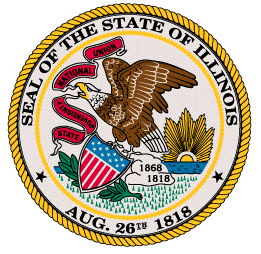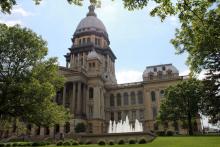Illinois Will Invest $420 Million in Broadband as Part of Massive Infrastructure Plan
In June, Governor JB Pritzker signed the Rebuild Illinois capital plan, a $45 billion effort that will repair and improve all manner of infrastructure in the state. Within the plan, state leaders intend to dedicate $420 million to upgrade and expand broadband infrastructure. Such a significant investment can make a real difference in the state, as long as decision makers adopt smart policies and allow local communities to receive funding for broadband projects.
Gas Tax for Gigabits
An increase in the state’s motor fuel tax will fund most of the broadband initiative. The increase in gas prices at the pump, which took effect on July 1, jumped from 19 to 38 cents. Similarly, a special fuels tax on diesel, liquefied natural gas, and propane increased from 2.5 cents to 5 cents. State analysts anticipate the increase will garner an additional $1.24 billion to state coffers in 2020.
The Rebuild Plan also grants state bonding authority for infrastructure projects and Cook County municipalities are permitted to raise their gas taxes by an additional three cents per gallon. There are also title and registration fees that will contribute to the fund.
As part of the plan, Illinois created the Connect Illinois initiative, which is part of the Illinois Department of Commerce. One of the goals of the initiative's Broadband Office is to provide all K-12 students with high-speed Internet access at no charge. As part of the Rebuild Illinois plan, $20 million will be used to update and expand the Illinois Century Network, which serves K-12 schools, colleges and universities, public libraries, and Internet access providers.
 Connect Illinois and the initiative’s Broadband Office will administer the grants made possible by the fuel tax increase. The office will also work to determine federal grants that are available and how best to access them to advance the state's goals.
Connect Illinois and the initiative’s Broadband Office will administer the grants made possible by the fuel tax increase. The office will also work to determine federal grants that are available and how best to access them to advance the state's goals.
Connectivity Council



